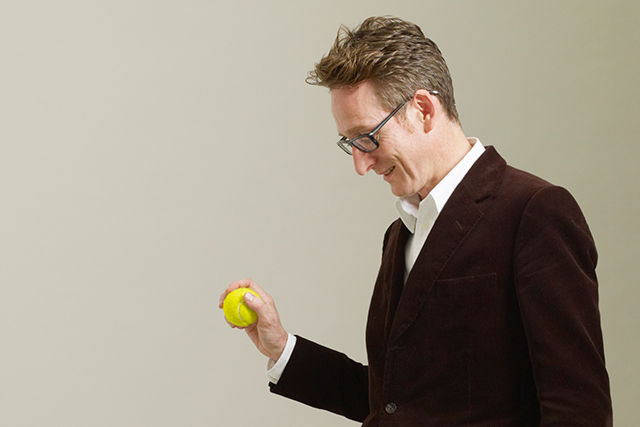Do you know what the secret of comedy is? According to Charlie Chaplin, it’s logic. At first glance this seems contradictory. How can the art of ridiculousness observe the laws of logic? But ever since I heard his definition, I’ve seen the truth of it in everything I find funny.
Logic
One of my favourite comedians is Vic Reeves, particularly when he does his club singer routine. What makes it so funny is its perfect logic. Admittedly, the logic is twisted and inverted, but it is still perfect. Although he sounds like nothing on earth, Vic does sound like a club singer.
Although the song sounds nothing like Pretty Woman, when you listen to it again he is actually singing the words (sort of). If he failed to do either of these, if he failed to honour the logical part of the contract, the sketch would cease to be funny.
I say all this because I’ve been asked to write about the secret of creativity. And the one word I’d use to describe it is equally mundane as the word logic. That one word is "usefulness".
Usefulness
At VCCP, in order to get to the best ideas, we don’t initially ask how creative something is, we ask how useful it will be. We define usefulness by asking three questions: does it entertain me? And/or does it simplify things? And/or does it tell me something new or valuable?
In my experience, true simplicity of thought is a form of genius - simplicity seems obvious and yet is incredibly difficult to achieve
Taking the last question first, being informative and newsworthy is always a great creative starting point.
Contrary to the stereotype, the most talented creative people I know are information junkies. I learned this early in my career at BBH, when John Hegarty used to say "There’s nothing more valuable than fact" whenever he was scrutinising the "Why should people believe this?" bit of the creative brief.
Product stories were at the heart of Levi’s "Launderette" (stonewashed) and Häagen-Dazs (real cream, not emulsifier) and Boddingtons (the widget).
Turning to the middle question, simplicity is one of those things that seems obvious and yet is incredibly difficult to achieve. In my experience, true simplicity of thought is a form of genius.
The strange thing is, when it comes to marketing, there seems to be a pressure to complicate. We can end up floundering in a sea of slideware and jargon when, at heart, we know our ad will have milliseconds to grab attention and cut through.
In the advertising village, it’s fashionable to be snooty about clients who refuse to sit through a half-hour strategic build-up before being presented the work, but I’m with them all the way – and I’m a strategist.
Distillation, clarity, compression, brevity – these are all qualities to treasure creatively. That’s one of the reasons I love The O2: such a simple idea, simply named, simply delivered, simply presented.
The three key points
Which brings me onto the first of my three questions: "Does it entertain me?" This has always been a key consideration, but is becoming ever-more important. As we move further into the experience economy, a brand wastes time at its peril.
And if you bore people, that’s what you’ll be doing. After all, in a world of near-parity products, why buy a boring brand when you can buy an entertaining one for the same amount of money?
There is, however, one note of caution to be sounded on the subject of entertainment. Never let the humour or drama become gratuitous.
As soon as they become irrelevant to the brand, people won’t enjoy your ad, and the creative device will be reduced to borrowed interest or, worse, it will seem illogical (see above).


